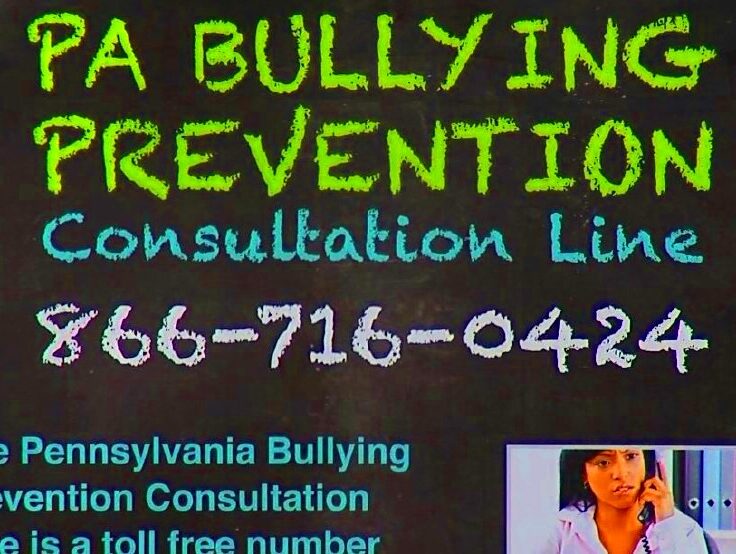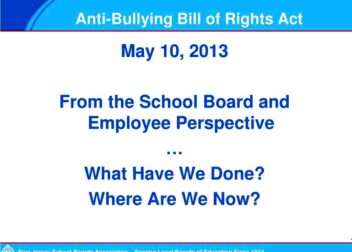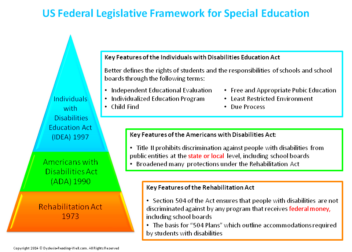School Bullying Prevention and Compliance in Pennsylvania
Bullying in schools is a worry for lots of families and Pennsylvania has made efforts to tackle this problem. The laws in the state aim to establish a nurturing atmosphere for students by outlining rules for stopping and handling bullying incidents. As both a parent and a teacher I have seen how these laws work in action and they provide an important structure to help our kids learn without being scared.
In Pennsylvania the School Code requires school districts to establish and enforce anti bullying policies. These regulations are designed to promote an environment of respect and security. The policies should outline bullying definitions, reporting procedures and consequences for individuals involved in bullying behavior. This legal structure assists in formulating a systematic approach to bullying incidents and ensures that all parties involved are aware of their roles and responsibilities.
The regulations highlight the significance of engaging parents and caregivers in addressing bullying. Educational institutions must keep parents informed about their anti bullying policies and the actions taken in response to incidents. This openness fosters trust, between schools and families enhancing the joint endeavor to tackle bullying.
Key Requirements for Schools to Address Bullying

In order to effectively tackle bullying Pennsylvania schools must adhere to certain standards. These standards aim to ensure that schools provide a secure setting for every student. I believe that these steps are crucial in promoting a healthy school atmosphere.
Some key requirements include:
- Development of Anti-Bullying Policies: Schools must create clear and comprehensive anti-bullying policies. These policies should define what constitutes bullying, including physical, verbal, and cyberbullying.
- Staff Training: Educators and school staff must receive regular training on recognizing and responding to bullying. This training helps staff to be more effective in preventing and managing bullying situations.
- Student Education: Schools are encouraged to implement educational programs that teach students about the effects of bullying and promote positive behavior.
- Clear Reporting Mechanisms: There should be straightforward procedures for students and parents to report bullying incidents. These mechanisms should be easily accessible and provide a sense of security to those reporting.
- Consistent Enforcement: The policies and procedures must be consistently enforced to ensure that all incidents of bullying are addressed appropriately.
When schools follow these guidelines they can foster an atmosphere that makes students feel secure and appreciated. Its not solely about complying with regulations; its also about positively impacting students lives.
Reporting Procedures for Bullying Incidents

When it comes to bullying reporting it is essential to do so promptly and efficiently. The laws in Pennsylvania specify the steps that schools need to take when dealing with bullying reports. Having gone through this process I can vouch for the significance of having well defined and easily accessible procedures established.
The reporting process usually goes like this.
- Initial Report: When a bullying incident occurs, it should be reported to a designated school official. This could be a teacher, counselor, or principal. Schools are required to provide a clear process for making these reports.
- Investigation: Once a report is received, the school must conduct a prompt and thorough investigation. This involves speaking with the involved parties, including witnesses, and reviewing any evidence.
- Documentation: All details of the incident and the investigation must be documented. This documentation is crucial for tracking patterns of behavior and ensuring accountability.
- Response: Based on the findings, the school must take appropriate action. This may include disciplinary measures for the bully, support for the victim, and strategies to prevent future incidents.
- Notification: Schools are required to inform the parents or guardians of the students involved about the outcome of the investigation and the actions taken.
The aim of these protocols is to tackle bullying in a way and offer necessary support to all students involved. Having a well defined procedure can bring reassurance to both parents and students as it shows that their worries are treated with importance.
Legal Obligations of School Staff and Administrators
In Pennsylvania school staff and administrators have a role in addressing bullying. Their duties go beyond management; they significantly influence students everyday lives. Based on my experiences as a parent and community member I recognize the importance of school staff handling these responsibilities with care.
Here are the main legal responsibilities for school personnel and administrators.
- Implementation of Anti-Bullying Policies: Schools must ensure that their anti-bullying policies are not just written documents but active practices. This means implementing strategies that prevent bullying and addressing any incidents promptly.
- Training and Education: Staff members must undergo regular training to stay informed about the latest practices and legal requirements concerning bullying. This training is essential for recognizing signs of bullying and knowing how to respond effectively.
- Monitoring and Reporting: Administrators are responsible for monitoring the school environment to identify any potential bullying. They must also ensure that reports of bullying are handled according to the established procedures.
- Support for Victims: School staff must provide support to students who have been bullied. This might involve counseling services, safety plans, and ensuring that the victim feels safe and supported.
- Disciplinary Actions: When bullying is confirmed, staff and administrators are tasked with implementing appropriate disciplinary measures. These actions should be fair, consistent, and aimed at both correcting behavior and preventing future incidents.
I believe that these duties are not just about following the law. They show a strong dedication to fostering a supportive atmosphere for students. When teachers and school personnel approach these responsibilities with sincerity it has a significant impact on combating bullying.
Parental Rights and Involvement in Anti-Bullying Efforts
As a mom and dad I believe that part of our responsibility is to protect our kids from bullying in school. The laws in Pennsylvania acknowledge the importance of parents in dealing with bullying and knowing these rights can help families work together to support their childrens well being.
Parents play a role in the anti bullying process with various rights and responsibilities including
- Right to Information: Parents have the right to be informed about the school’s anti-bullying policies. Schools must provide details on how these policies are implemented and how incidents are handled.
- Involvement in Reporting: Parents can report bullying incidents to the school. They should feel confident that their concerns will be taken seriously and addressed appropriately.
- Participation in Resolution: Parents are entitled to be involved in the resolution process. This means they can work with the school to develop strategies to support their child and address the bullying.
- Access to Support Services: Schools should offer resources and support services to both victims and their families. Parents have the right to access these services and advocate for their child’s needs.
- Review and Appeal: If parents feel that the school’s response is inadequate, they have the right to review and appeal decisions. This process ensures that their concerns are addressed thoroughly.
Through my experiences, as a parent I’ve come to realize the importance of being actively engaged and advocating for what’s right. When parents recognize and assert their rights they can contribute to fostering a safer and more nurturing atmosphere for their kids.
Consequences for Schools Failing to Comply
In Pennsylvania schools are legally obligated to tackle and prevent bullying. But what occurs if they don’t meet these responsibilities? Understanding the repercussions of failing to comply sheds light on the significance of upholding strong anti bullying protocols. Personally I’ve witnessed how crucial it is for educational institutions to maintain these benchmarks, to ensure the safety and welfare of their students.
Schools that do not adhere to anti bullying laws may face several repercussions such as.
- Legal Penalties: Schools may face legal repercussions, including fines or sanctions, for not adhering to anti-bullying regulations. These penalties serve as a deterrent against neglecting bullying issues.
- Increased Scrutiny: Non-compliance can lead to increased scrutiny from state education authorities. Schools might undergo more frequent inspections and reviews to ensure they meet legal requirements.
- Impact on Funding: In severe cases, failure to comply may affect state funding or grants. Schools relying on such funding may find their resources and programs impacted.
- Reputational Damage: Beyond legal and financial consequences, a school’s reputation can suffer. A poor track record in handling bullying can damage trust with parents, students, and the community.
- Negative Impact on Students: Ultimately, the biggest consequence is the impact on students. Failing to address bullying effectively can lead to a toxic school environment, affecting students’ mental health and academic performance.
Complying with anti bullying laws is not solely about steering clear of penalties; it involves fostering a secure and nurturing atmosphere in which students can flourish. Schools have a duty to uphold this responsibility to safeguard and support their students wellbeing.
Recent Updates and Changes in Bullying Prevention Laws
In the constantly changing world of education Pennsylvania has made revisions to its bullying prevention laws with the goal of enhancing student protections. As a parent and engaged community member I’ve witnessed the effects of these changes on our schools and children. These updates go beyond being mere legal procedures; they signify a dedication to fostering safer learning spaces.
Recent updates include:
- Expansion of Definitions: The laws now offer a broader definition of bullying to include cyberbullying and harassment based on various factors such as race, religion, and disability. This ensures that all forms of bullying are addressed effectively.
- Enhanced Reporting Requirements: Schools are now required to implement more rigorous reporting systems. This includes online platforms for anonymous reporting and quicker response times to address incidents.
- Mandatory Training: There’s a stronger emphasis on regular and comprehensive training for school staff. This training covers the latest anti-bullying strategies and how to recognize subtle signs of bullying.
- Increased Focus on Mental Health: The updates highlight the importance of mental health support for both victims and perpetrators. Schools are now encouraged to offer counseling and mental health resources as part of their anti-bullying programs.
- Parental Involvement: New laws also mandate greater parental involvement in the anti-bullying process. Schools must actively engage parents in developing and implementing anti-bullying strategies.
These improvements reflect the continuous work being done to enhance the learning journey for every student. As someone who values the impact of community and progress I see these changes as comforting and essential in creating a more inclusive and secure educational setting.
Resources and Support for Victims of Bullying
When a kid faces bullying its vital to have resources and support available to assist them in dealing with the situation. Having gone through similar challenges with my own family I recognize how crucial it is to seek assistance. Pennsylvania provides a range of resources to aid victims of bullying and being aware of where to seek help can truly impact the outcome.
Below are some helpful resources and assistance alternatives.
- Counseling Services: Many schools provide access to counselors who specialize in helping students deal with the emotional effects of bullying. Private counseling services are also available for more personalized support.
- Support Groups: Local organizations and community groups often run support groups for bullying victims. These groups offer a safe space to share experiences and gain encouragement from others who have faced similar challenges.
- Hotlines and Helplines: There are numerous helplines available for immediate support. These services can offer advice, emotional support, and guidance on the next steps to take.
- Educational Resources: Websites and organizations dedicated to anti-bullying often provide educational materials for both students and parents. These resources can help in understanding bullying dynamics and effective coping strategies.
- Legal Assistance: In severe cases, seeking legal advice might be necessary. Some legal aid organizations offer support to families dealing with bullying-related issues, ensuring that their rights are protected.
Helping a child who has faced bullying involves a strategy that includes support, educational assistance and in some cases legal resources. Based on my personal experiences I’ve come to realize that addressing the situation promptly and providing support can make a significant difference in restoring a child’s sense of safety and self assurance.
Frequently Asked Questions
Tackling bullying in educational institutions can prompt a lot of inquiries from worried parents and teachers. Throughout my experience I have encountered a number of recurring questions that frequently come up. Offering responses to these queries can help clarify the situation and provide comfort, to everyone concerned.
Below are some commonly asked questions regarding the prevention of bullying:
- What should I do if my child is being bullied? The first step is to report the incident to the school. Document everything related to the bullying and communicate with school staff to ensure appropriate actions are taken. Additionally, consider seeking counseling for your child to help them cope with the emotional impact.
- How can I support my child if they are the bully? It’s important to understand the underlying reasons behind their behavior. Work with school counselors and educators to address these issues. Support your child in developing empathy and understanding the consequences of their actions.
- What are the school’s responsibilities in handling bullying? Schools are required to have anti-bullying policies, investigate reported incidents promptly, and implement disciplinary measures when necessary. They must also provide support for both the victim and the perpetrator and involve parents in the process.
- Can bullying occur outside of school hours? Yes, bullying can happen outside of school, including online. Schools are encouraged to address cyberbullying as part of their anti-bullying policies, and parents should be vigilant about their child’s online activities.
- What if I’m not satisfied with the school’s response? If you feel the school is not handling the situation appropriately, you have the right to escalate the issue to district officials or seek legal advice. It’s important to advocate for your child’s safety and well-being.
By gaining insight into the nuances of bullying prevention and response you can gain a clearer perspective and navigate challenges more efficiently. With actions and community backing we can join forces to create a safer space for every student.
Conclusion
Tackling bullying in schools is no easy feat but it’s an essential one that calls for teamwork among teachers, parents and the community. With changes in laws and support systems in place for victims Pennsylvania is showing its dedication to fostering safer and more nurturing school settings. Having seen firsthand the positive effects of these initiatives I can vouch for the significant impact they have on students and their families lives.
By keeping up to date with the newest regulations knowing the responsibilities of school personnel and actively engaging in anti bullying initiatives we can all play a part in creating a more enriching school experience. The road to eradicating bullying is a continuous one but through persistent dedication and teamwork we can strive to make sure that every student feels secure and appreciated in their educational setting.


